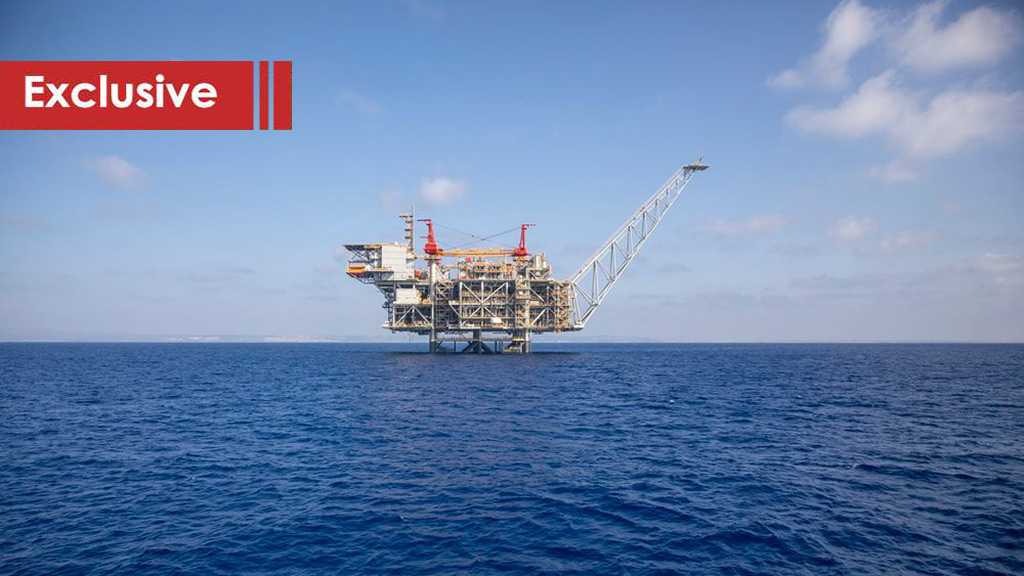As For the Thought of Torpedoing the Agreement...

Translated by al-Ahed News
On Thursday, everyone woke up to a loud scream in “Israel”. Yair Lapid decided to reject the Lebanese amendments to the draft maritime agreement.
We endured long hours of threats and intimidation, before “Israel’s” so-called high-level security cabinet arrived at an ambiguous position in the evening not rejecting the agreement, but rather voicing objections to some of the amendments requested by Lebanon.
The serious people, from all parties concerned, acted under the assumption that the developments in “Israel” come within the framework of doing business under electoral pressure, and that ‘Lapid is trying to act tough in the face of [Sayyed] Hassan Nasrallah’, as “Israeli” academic Yoni Ben Menachem put it.
However, let us suppose that “Israel”, by rejecting the Lebanese amendments, wants to embark on an adventure that threatens to blow up the agreement or that it wants to gain more time and procrastinate in pursuit of a better circumstance in terms of the nature of the agreement. What does that mean?
After the last few rounds of negotiations, the enemy became acquainted with details from Lebanese politicians it was not familiar with before. The enemy also realized that the position of the resistance placed limits on any additional concessions from the Lebanese side.
But the resistance would not have stopped at this point, especially when it informed the enemy, verbally and in the field, that it was ready for much more than a reminder strike, similar to what happened on the day it sent the drones over the Karish field.
Today, the enemy is telling us that it is ready to sabotage the agreement, and that in this case, it is threatening Lebanon by depriving it of gas and oil and threatening its security in the event of a military confrontation.
What matters to the enemy today is not only the position of the Lebanese government, but also ensuring that the resistance is tied up on the one hand and that Lebanon is prevented from discussing the maritime or land borders at a later time on the other.
In this case, it is better for the enemy to read the Lebanese position in another way. To help “Israel” in this, it must be noted that its intransigence will lead to a completely different reality:
- Blowing up the agreement means blowing up the negotiating track that we have known in recent months. Returning to square one means a change in the Lebanese ceiling from the one originally discussed. If the enemy insists on rejecting the agreement, the new ceiling will be based on the +30 line and not at line 23.
- Blowing up the agreement under the pretext that Lebanon refuses to demarcate the maritime and international borders now does not worry the resistance, which does not basically recognize the existing borders as a fait accompli, nor the borders as drawn up during the era of colonialism.
Therefore, “Israel” will have to answer a fundamental question: Does it want to extract gas or not?
The enemy believes that delaying the work in the Karish field, along with maneuvering to delay the agreement, will prevent the resistance from taking action. That’s assuming that the issue is related solely to Karish while ignoring the fact that the main reason for the resistance’s actions is part of an effort to lift the Western siege on Lebanon and secure the maritime rights that help the country overcome the crisis.
It would be useful for the enemy to ask itself whether the resistance [in Lebanon and Palestine] would allow the “Israelis” to operate freely in the rest of the fields in accordance with the "after Karish" equation.
If there are people in “Israel” or the United States hoping that delaying the agreement until after the elections will make things easier in light of changes the West expects within the Lebanese presidency and government, they do not understand the importance of the resistance’s trust in President Michel Aoun in particular, and that in the event of a presidential vacuum or in light of the new political division, the resistance will regain its largest margin, which it reduced due to its confidence in President Aoun.
Therefore, betting on changes that will lead Lebanon to concessions at a later stage indicates a lack of a serious understanding of the resistance's strategy and its way of thinking.
As for all the talk about a high-ceiling that circulated in the “Israeli” media on Thursday and about a military mobilization, threats to destroy Lebanon, and preparations for a military operation against the resistance, it raises a question whether there is anyone in “Israel” who believes that this is possible.
And if one of them ventures in this direction, he must prepare well because there are those in the leadership of the resistance who have the ability and the will to make decisions that do not leave any room for any agreement to demarcate the land or sea borders.
As for the belief that the threats will deter the resistance, the response comes from the words of the “Israeli” Mossad chief Didi Barnea, who said on Thursday, “Nasrallah has publicly pledged to prevent the production of gas from Karish if there is no agreement [...] There is a fear that he will have to show that he is keeping his word.”
Ibrahim Al-Amin | Al-Akhbar Newspaper
Comments




